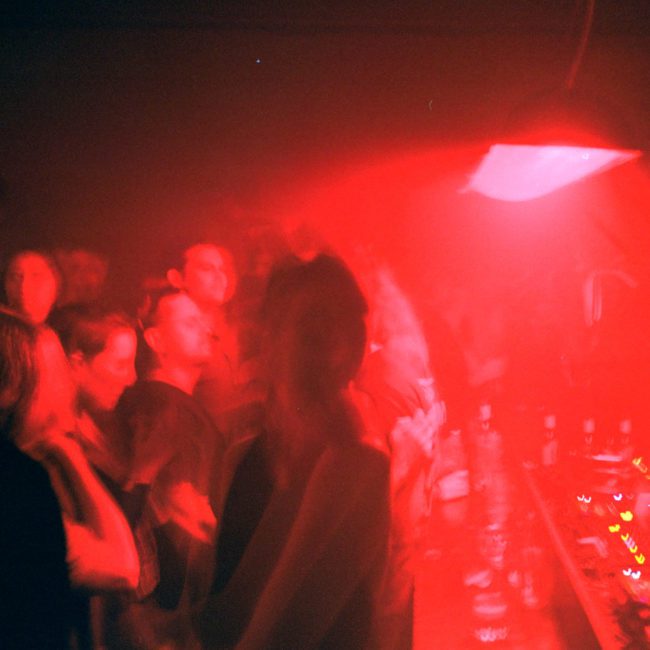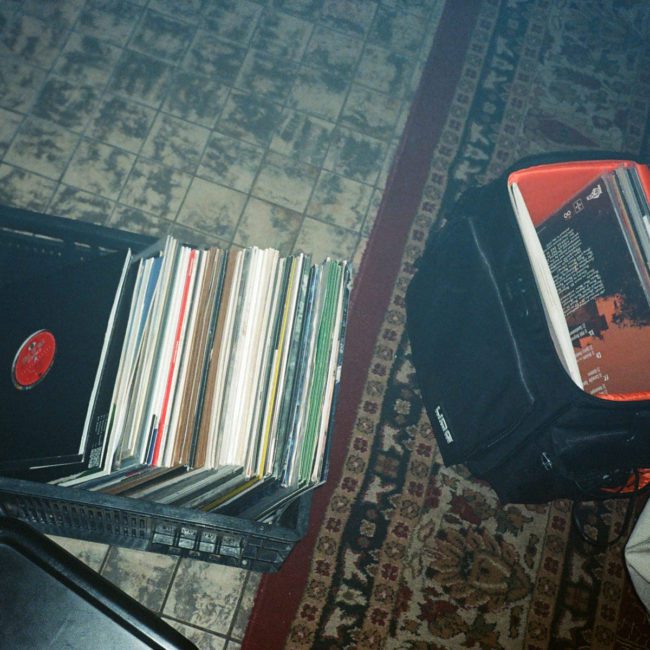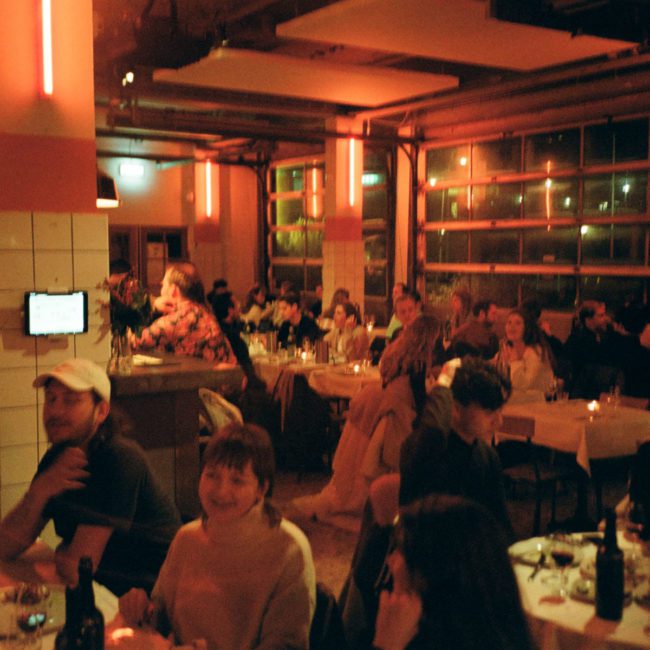Amsterdam-based producer and label head Hame has steadily built up a penchant for crafting deep, emotive house that marries intimacy with dance floor energy. As co-founder of Pintai – a record label and community grounded in warmth, subtlety, and human connection – his productions carry a resonance that extends well beyond the studio.
Pintai began life not as a label, but as a gathering. Alongside close friends, Hame hosted small-scale parties in Amsterdam that foregrounded atmosphere and intention over excess, prioritising space for people to connect both musically and socially. Those values eventually gave rise to Pintai Records, which has now reached its third release with ‘Helio‘ EP by Swiss producer Pango. It’s a natural extension of the label’s philosophy: immersive, textural, and emotionally charged music that is as meditative as it is danceable.
Hame’s path into electronic music was shaped by a lifelong relationship with instruments -piano, drums, and guitar – before discovering Ableton as a teenager. What began as playful experimentation took on new intensity during his student years, sparked by Paul Kalkbrenner’s Berlin Calling soundtrack, which became a gateway to countless late-night production sessions. Over time, this dedication evolved into a distinct sound marked by subtle intensity and emotional depth, leading to releases on respected imprints such as Small Steps, Noire & Blanche, Far Blue, and Project Indigo. That same spirit of exploration and connection eventually gave rise to Pintai, a label and community founded with friends to nurture artists who share a similar vision.
‘Helio‘ EP is emblematic of that approach. Built around hypnotic loops, detailed percussion, and subtle contrasts, Pango’s music feels both exploratory and deliberate. The closing track Wardal, with its jazzy piano lines and bubbling synths, recalls the heartfelt touch of Moomin – a reference point that makes sense within Pintai’s orbit of emotive deep house. For Hame, the release represents not just a strong addition to the catalogue, but also the deep personal connection he seeks with artists. Pango, like previous contributors, was first encountered through mutual networks and became part of the Pintai story through trust and shared philosophy.
Just as important as the records are the events. Pintai has long sought to bridge the intimate energy of its gatherings with the expansiveness of the dance floor. That vision now extends beyond Amsterdam. On 22 November, Pintai makes its London club debut at Club Cheek in Brixton, inviting a line-up that reflects the same emphasis on friendship, subtlety, and warmth. It’s a chance for the label’s philosophy to resonate in a new city, and a continuation of the connections first sparked at festivals such as Above Below and Waking Life.
In the interview that follows, Hame opens up about his history with music, the philosophy that shapes Pintai, the art direction that defines its visual identity, and the importance of building bridges between records and experiences. He also reflects on Amsterdam and London’s differing dance floor cultures, his forthcoming debut album for Yoyaku, and what he ultimately hopes Pintai can offer: a genuine space for people to be present, connect, and carry something meaningful home with them.
Interview by Tom Durston
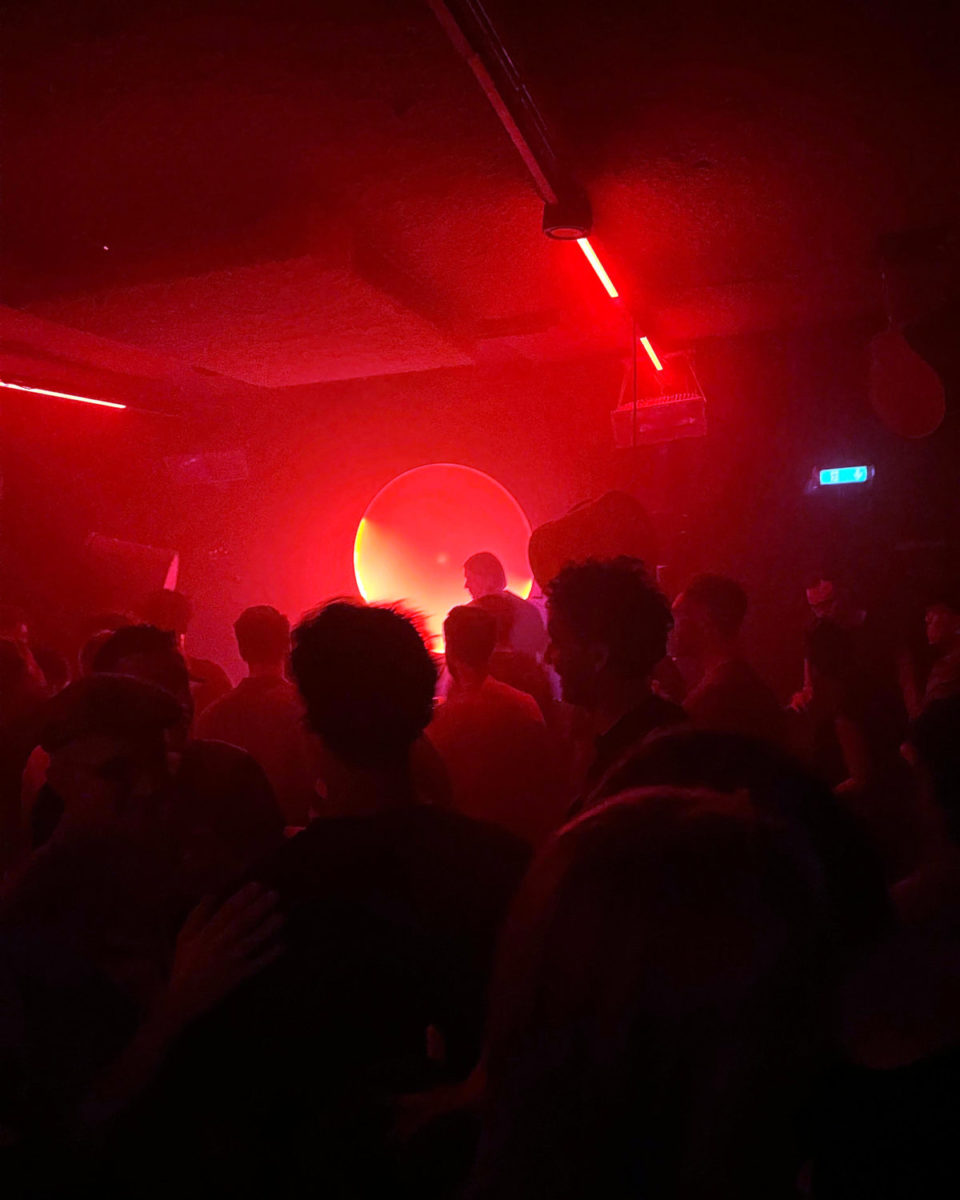
"I love it when intensity still holds a touch of romance, or when something feels romantic without being cheesy. That balance connects differently with people, especially on the dance floor."
First off, thank you for recording this mix and taking the time to answer our questions. To begin, tell us about the mix you’ve put together – what tracks have you featured, and what kind of atmosphere were you aiming to create?
Thanks for having me, it’s an honour to be part of the IA mix series – I’ve been listening to quite a few in the past. And of course we met in your record store! For this mix I wanted to give my sound an occasional dubby touch, while blending in a lot of new productions I made over the summer. From there it became a natural flow. Apart from unreleased own material, there are tracks from BROUQADE, Hokuto Sato, Leonel Castillo, The Timewriter, LB Honne, Pango and Martinou. The last four keep popping up in my mixes lately.
Can you tell us a bit about your history with music – how you first got into deep electronic sounds, and what drew you toward producing and DJing?
Music has always been there. I played piano as a kid, took drum lessons (with a kit that filled half my bedroom), but guitar was my main instrument for years. Around 15, I discovered FL Studio. I loved the possibilities, but without tutorials back then I was mostly pressing buttons and getting lost.
A few years later, during my college days, Berlin Calling came out. The scene where Paul Kalkbrenner records the metro and turns it into a track really touched me. By then I’d found tutorials, so it felt easier to learn. I listened to that album on repeat, produced for hours a day and honestly lost track of my studies that year.
For years I kept my music very personal, until I finally sent demos to Gilles de Decker and Lola Haro, which became the first ‘Compathy‘ EP. After moving to Amsterdam, I met more like-minded people and slowly got into DJing – helped by friends with record players. Collecting records and going out a lot gave me a better feeling for how music touches the dance floor.
Pintai is now three releases deep. What initially inspired you to start the label, and how has your vision for it evolved since the first record?
Before the label, we were already hosting events in Amsterdam. The idea was to create a musical home where both sound and real connections could grow. We sometimes felt a bit disconnected from the scene here – it was leaning more towards energy and darkness, while we missed subtlety, warmth, and space to connect.
When it comes to releasing records, we try to work together with artists that seem to understand this idea both musically and personally. This is why so far we have mainly been working with artists that we’ve met as persons too.
The sound of Pintai will probably not be described in genres or clear energies… but more sound textural way and I like to believe there is some similar philosophy behind the creations that is audible but hard to put into words. This idea hasn’t changed much.
When curating music for Pintai, what qualities do you look for in artists and their sound?
It’s not so much technical, more psychological. I’m drawn to artists who can speak to the soul without being trapped in production rules… music that carries gentle confidence to listen to yourself creatively. I love it when intensity still holds a touch of romance, or when something feels romantic without being cheesy. That balance connects differently with people, especially on the dance floor.
Visual identity plays a big role in Pintai, with artwork that often feels sculptural and abstract. How do you approach the art direction for the label?
Again, it started with people. A friend introduced us to Ines Fernandez de Cordova, and we clicked right away. She understood our balance of sophistication and playfulness and nailed it from the start. Working with her has been a lot of fun, and by now she’s involved in nearly every visual aspect of Pintai. Apart from that I enjoy making pictures that fit the idea we have for Pintai.
What drew you to Pango’s music, and what made Helio a natural fit for Pintai?
We’ve been following Project Indigo for a while and met some of them at Waking Life. Pango is closely connected, and I first heard him through a Far Blue podcast. I still remember going for a run but slowing down to a walk because I wanted to concentrate more on the music and lose myself in the details and story properly.
After a video call with him, it felt clear: we wanted to release his EP and book him for our Tunis event with Dreamquest.
The press release describes Helio as exploring contrasts – raw textures meeting refined sound design. How do you interpret the atmosphere and emotional weight of this release?
What Pango does really well is creating hypnotic loops that keep you hooked – like staring into a fireplace, predictable yet impossible to look away. His subtle textures make the tracks both danceable and meditative, leaving space for introspection and ease. This is something I tend to look for in music.
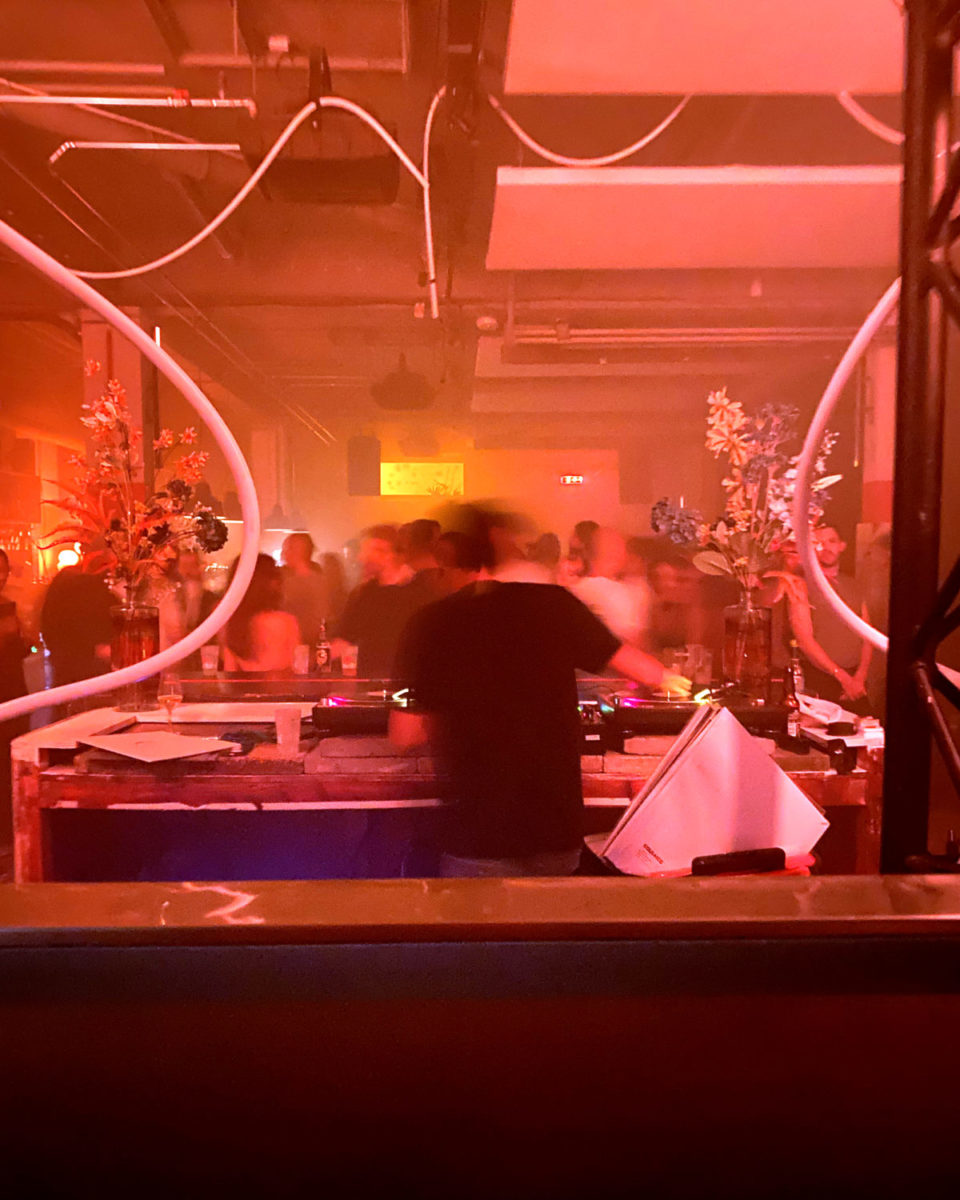
"I’m drawn to artists who can speak to the soul without being trapped in production rules... music that carries gentle confidence to listen to yourself creatively."
Pintai will make its London club debut at Club Cheek in Brixton on 22 November. How did the idea for hosting a London event come about, and why now?
Mainly because we missed our friends from Above Below festival. That was our first impression of a London dance floor, and it was beautiful. It felt very similar to what we appreciate so much in some of our own events, so we invited Dan & Jake from their crew, alongside Noodle and Telfort. Our events always grow from personal connections – I think it is an important foundation that translates into something you can feel during an event.
What can people expect from the night in terms of music and atmosphere?
Musically it will move across deeper sounds, probably with some uplifting touches. We haven’t been in the space yet, but we trust the line-up and our friends to bring the right atmosphere. We’re also working on bringing small art installations into our club events. Hopefully one will be ready for this night – it’s especially fun because the creator of these art pieces happens to live around the corner of the venue. A nice moment to see how it fits in.
How important is it for you to build a bridge between Pintai’s records and the dancefloor experience?
Very important. We want Pintai to feel like a musical home, and events are a natural way to bring people together around that. At the moment the records we release are records we’d also love to play out.
As the events grow, we’ll have space to broaden the musical spectrum too as there will be more space for different styles of music. This may sound limiting, but I think there is a lot of room for music within events if it’s brought within the right context.
Another reason for me personally is that I think there is little as good as hearing a track for the first time over a clubsystem at the right moment. And after that, a song becomes a great memory. I like this idea and I hope we can facilitate that for people.
As someone based in the Netherlands, how do you see the music scene in Amsterdam compared to London?
From my experience, London events feel more playful, with a kind of sober joy. Amsterdam’s scene is very mature and has its beauty, but sometimes it feels locked into rules of how to dress or behave as a raver. Looks and dances become alike. I find this quite interesting. I get the idea this is fuelled by social media.
In London I felt less of that, more jolly quirkiness without losing a professional take on what a dance floor experience can be. I think Amsterdam could learn from that lightness.
But while writing this I also realise that this is my hometown, and travelling often happens for special occasions. So my comparison may be distorted as it is based on special moments in London while here I end up in so many different spots all the time.
Your own productions often carry a strong emotional resonance. How does your personal approach to making music influence the kind of records you want to release on Pintai?
They influence each other naturally – it all comes from the same place. With Pintai, the three of us bring different ears and backgrounds, which keeps things balanced. Not everyone is a producer, and that’s a strength. I believe that knowledge is often in the way of the heart when it comes to music. With the three of us we manage to both listen to production quality, but also remind each other to trust feeling over perfection.
Earlier this year, you visited Inverted Audio Record Store for an in-store with matsssiii. How do you see these more intimate gatherings in relation to larger club nights?
I really enjoyed that. It set a warm tone before the event we were playing and gave time to connect. I’m not much for chatting on the dance floor, but I do like meeting people around the music. The size of the event matters less than the intention – if the space and people feel right, it works. For this reason we like to meet the people we work with when it comes to venues too. Hear about why it’s there and where it’s going.
Club Cheek is similar – it’s run by friends of friends with a strong music background, which fits perfectly with Pintai’s spirit.
What’s next for you personally as a producer – are there new releases or projects in the pipeline?
Yes, there’s an album coming on Yoyaku very soon – my first proper conceptual album. It feels like the right time, a way to wrap up a chapter before reflecting on the next. I’ve also been working on new material that feels like an evolution of my sound, but I might take some time before releasing again. And of course the Small Steps x Pintai ADE event is coming on the 24th October. This is becoming a yearly gathering, which feels special.
What makes me really happy is that more live and DJ bookings are coming in. Playing allows me to travel, connect, and share music in person, which I love.
Finally, what do you hope people take away from Pintai – whether through the records, the events, or your own sets?
A genuine place where people can be in the moment, and amplify each other’s energy. Whether through a mix, a dance, or a conversation – something that still feels good the next day.
‘Helio’ EP is scheduled for release on 15th September via Pintai. Buy a vinyl copy from Inverted Audio Record Store.
TRACKLIST
1. Arno – Set Me Free [Brouqade]
2. Pango – Wardal [Pintai]
3. Hokuto Sato – Walk With Me [Aura]
4. Hame – ? [Unreleased]
5. Leonel Castillo – Stealer [Sushitech]
6. The Timewriter – Siamese Hearts [Plastic City]
7. Hame – ? [Unreleased]
8. Hame – ? [Unreleased]
9. Pango – Epawa [Pintai]
10. Lb Honne – Unreleased [Orion]
11. Martinou – Hold Then Release [Fauxpas Musik]
12. Hame – ? [Unreleased]
13. Hame – ? [Unreleased]
14. Hame – ? [Unreleased]
15. Hame – ? [Unreleased]
16. Hame – ? [Unreleased]

